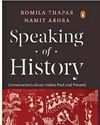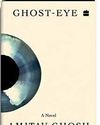Eco- Warrior Extraordinaire
Reader's Digest India
|May 2017
A one-man army fights for the east Kolkata Wetlands that hold the key to the city’s survival.

IF HEROISM IS MEASURED by the number of people it impacts, the act of trying to save an entire metropolis from itself must rank quite high on the list. This is what Dhrubajyoti Ghosh, 70, engineer, ecologist and defender of the East Kolkata Wetlands (EKW) has been doing since the early 1980s.
“Why is the cost of living so low in Kolkata?” Ghosh asks. He explains that this is because of the EKW, an approximately 12,500-hectare system of transformed wetlands comprising waterbodies, vegetable gardens and paddy fields that fringe the eastern edge of the city and act as its kidneys,filtering out toxins from the waste. The cost advantage is wide-ranging— vegetables grown here have a short distance to travel to market; around 10,000 tons of fish, a staple of Bengali cuisine, are farmed annually here; the trash of the entire city is sorted and recycled by hand, and sewage cleaned naturally, for free.
If this is not enough, he says, there is another lesson. That of Chennai, which, like Kolkata, is a low-lying city and was saved from the perils of rising water by wetlands that acted as a buffer zone. During floods, the wetlands took the brunt of excess water, protecting the city behind it. But Chennai permitted extensive real estate expansion into the wetlands—only 27 of the original 650 surrounding wetlands remain—and the floods of 2015, inflicting damages worth $3 billion (roughly ₹20,000 crore), displacing 18 lakh people, and killing 347, were a direct consequence of this decision.
Denne historien er fra May 2017-utgaven av Reader's Digest India.
Abonner på Magzter GOLD for å få tilgang til tusenvis av kuraterte premiumhistorier og over 9000 magasiner og aviser.
Allerede abonnent? Logg på
FLERE HISTORIER FRA Reader's Digest India

Reader's Digest India
Speaking of History by Romila Thapar, Namit Aroram, Penguin Random House, India
Romila Thapar is one of India's most accomplished historians, her work on ancient India being particularly well-received and a part of university curricula around the world.
1 min
December 2025

Reader's Digest India
ME & MY SHELF
Ranjeet Pratap Singh is the co-founder and CEO of Pratilipi, the largest Indian language digital storytelling platform with over 9,50,000 writers in 12 languages and over 30 million monthly readers. Singh was part of the Forbes 30 Under 30 list in 2018.
3 mins
December 2025

Reader's Digest India
HUMOUR in UNIFORM
While our frigate was taking on supplies at sea from a British ship, I noticed three of their sailors pointing to our destroyer’s squadron crest, which was proudly mounted on the side of our ship.
1 min
December 2025

Reader's Digest India
Obeshwar by A. Ramachandran, Oil on canvas, 2022 78 x 192 inches
One of independent India’s preeminent artists, A. Ramachandran (born in 1935), passed away last year, following a long and distinguished career.
1 min
December 2025

Reader's Digest India
Memes for Mummyji by Santosh Desai, HarperCollins India
Santosh Desai, one of Indian advertising's leading lights for over two decades, has a well-earned reputation for spotting cultural trends in Indian cities, as evidenced by his previous book Mother Pious Lady.
1 min
December 2025

Reader's Digest India
Ghost-Eye by Amitav Ghosh, HarperCollins India
In Amitav Ghosh's first novel since Gun Island (2019), we meet a young Marwari girl named Varsha Singh living in Calcutta in the 1960s with her strictly vegetarian family.
1 min
December 2025

Reader's Digest India
"Good Songs Stay Written ..."
Rock legend Bruce Springsteen on music as a time machine, responsibility in the family, and the situation in the USA
3 mins
December 2025

Reader's Digest India
WHEN COMPUTERS WERE FEMALE
THE PIONEERS OF PROGRAMMING WERE SIX WOMEN
6 mins
December 2025

Reader's Digest India
I Am My Mother's Older Brother
As the onset of dementia reshapes their world, a daughter becomes her mother's carer and keeper while navigating grief, duty, and unwavering love
7 mins
December 2025

Reader's Digest India
Small Changes Big Results
While motivation gets us started, discipline is what keeps us going.
3 mins
December 2025
Translate
Change font size

